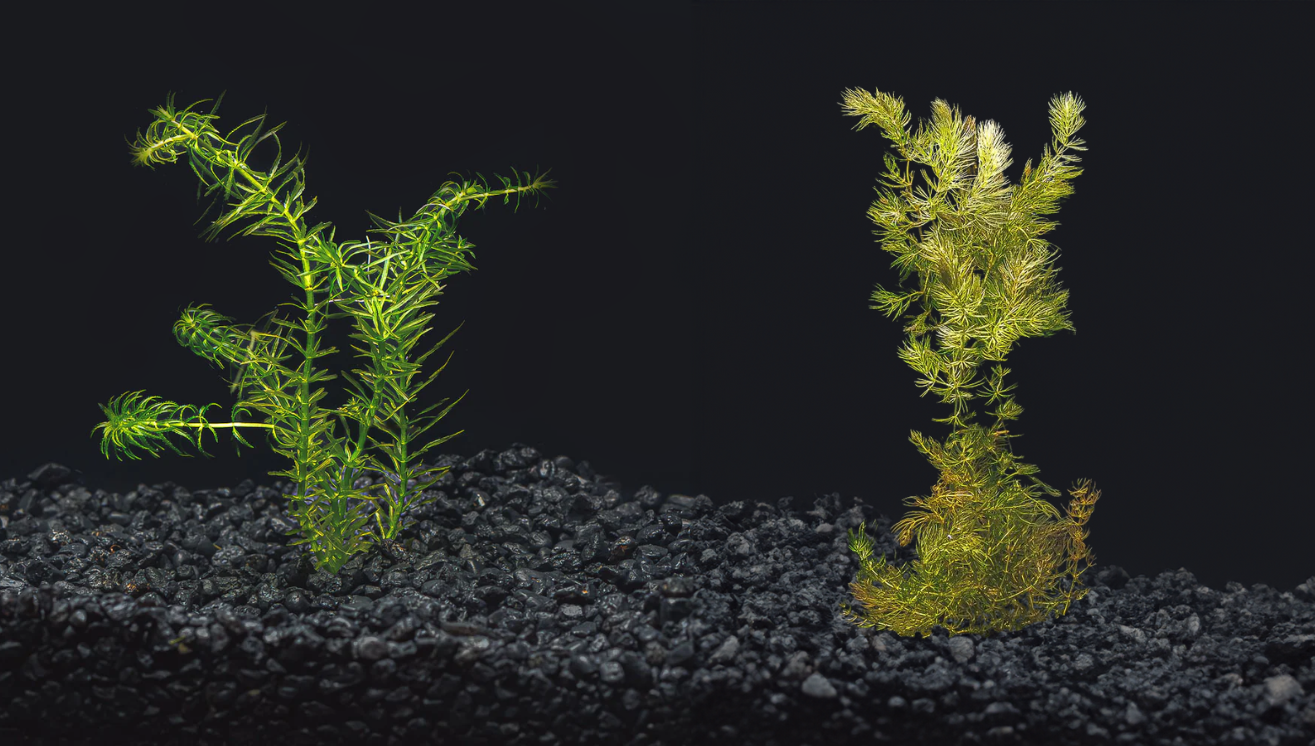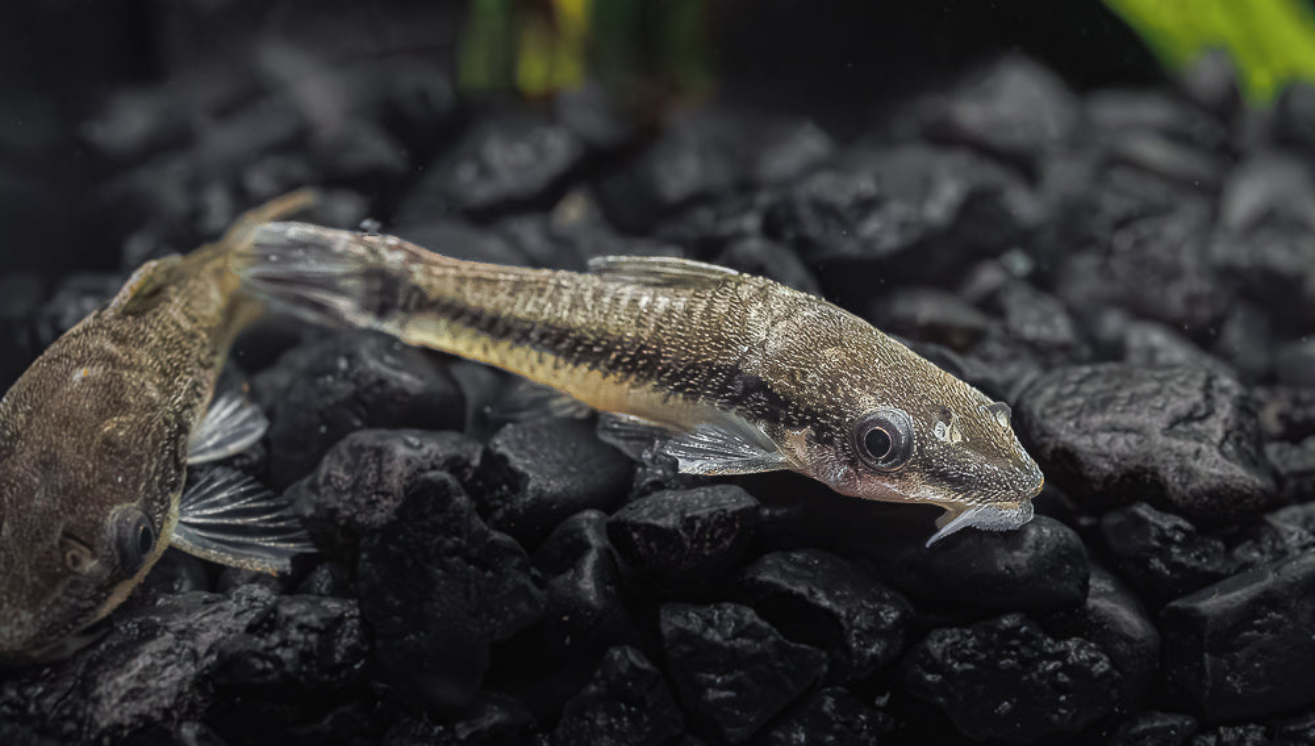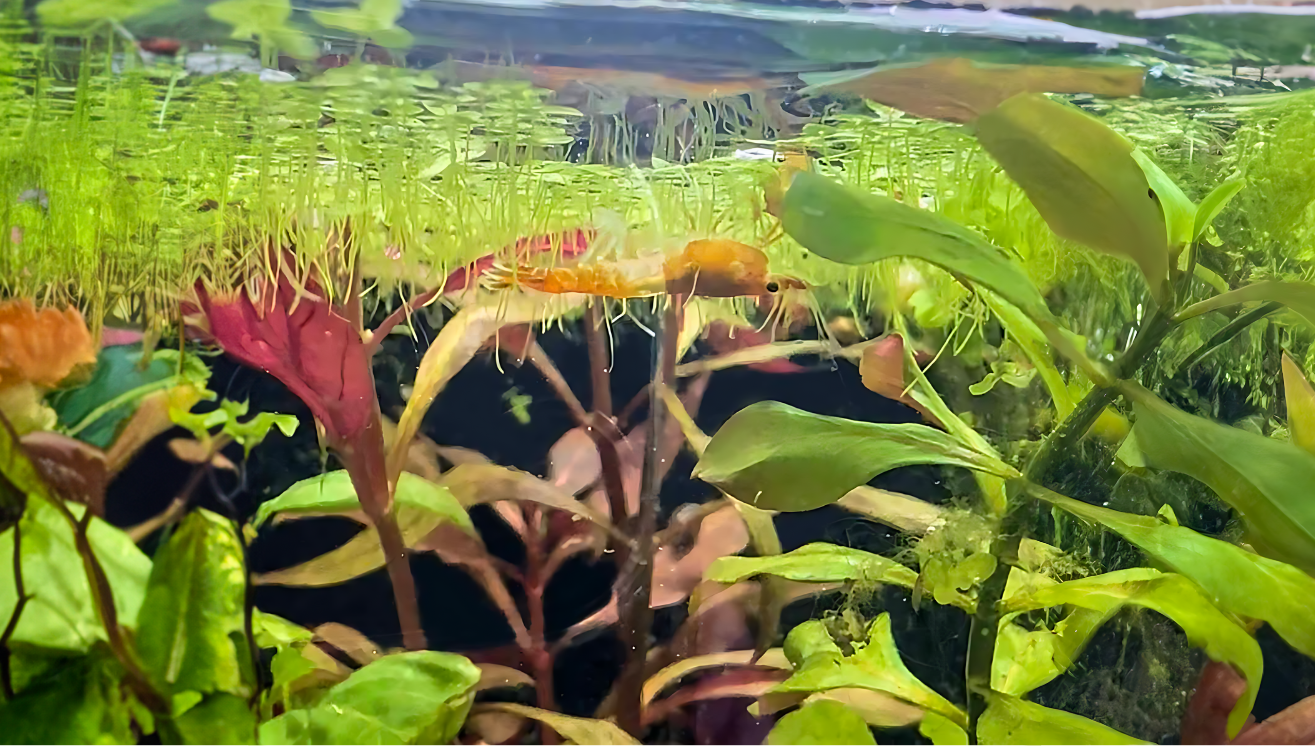Your Cart is Empty
🚚 Flat-Rate FedEx Priority Overnight — Just $29.99 (Limited-Time Special!) | FREE over $200
🚚 Flat-Rate FedEx Priority Overnight — Just $29.99 (Limited-Time Special!) | FREE over $200
🚚 Flat-Rate FedEx Priority Overnight — Just $29.99 (Limited-Time Special!) | FREE over $200
by Emily Dourm April 05, 2024 2 min read

The world of aquatic plants is already fascinating, but when you add vibrant, eye-catching species, things really pop! Remember those neon plastic plants from childhood? Live red plants can give you the same bold color, without the vinyl. Let’s start with my favorite red aquatic plants!

Scientific Name: Alternanthera reineckii
Light Requirements: Medium to High
Care Level: Moderate
Scarlet Temple is easy to grow and great for all skill levels. It develops thicker growth and richer red hues under stronger light. This plant also offers hiding spots for fry and boosts oxygen levels. Keep it in soft, slightly acidic water (68–82 °F) with moderate to intense lighting, and be patient—it can reach about 20 inches over time.

Scientific Name: Nymphaea rubra
Light Requirements: Low to Medium
Care Level: Easy
The Dwarf Lily (Nymphaea rubra) is perfect for beginners. Plant the bulb so it’s only half-buried. As it grows, new leaves emerge to the surface—trim them to control height. It also helps absorb excess nutrients, keeping your tank balanced.

Scientific Name: Phyllanthus fluitans
Light Requirements: Low to High
Care Level: Easy to Medium
Red Root Floaters thrive in open tanks, showing deeper red leaves under stronger light. They prefer harder water (75–85 °F) and don’t tolerate strong currents. You may need to dose fertilizers for best color and growth.

Scientific Name: Echinodorus “Red Flame”
Light Requirements: Low to Medium
Care Level: Easy
The Red Flame Sword shows off bright red leaves under good light. Inert substrates benefit from root tabs; nutrient-rich soils and occasional CO₂ boost growth. It adapts well and doesn’t demand constant fertilization.

Scientific Name: Nymphaea zenkeri
Light Requirements: Medium to High
Care Level: Easy
The Red Tiger Lotus (Nymphaea zenkeri) brings dramatic red blooms and leaves. It grows best in an open, well-lit area—fertilizers help but aren’t mandatory. Remove long floating leaves as needed to keep light flowing to lower plants. It’s adaptable across a range of water conditions.
In conclusion, red aquatic plants aren’t much more demanding than other species—but better care means even better color. While they survive on moderate light and nutrients, a little extra attention will make them truly shine.
Comments will be approved before showing up.

by Brooke Lees October 04, 2024 2 min read
Aquarium plants do much more than add beauty to a tank, they help maintain water quality and provide natural shelter for your aquatic pets. Among the many available options, Hornwort and Anacharis stand out for their versatility, ease of care, and benefits to aquarium ecosystems. Let’s dive deeper into the differences and similarities between these two popular plants.

by Brooke Lees September 20, 2024 2 min read

by Brooke Lees September 13, 2024 3 min read